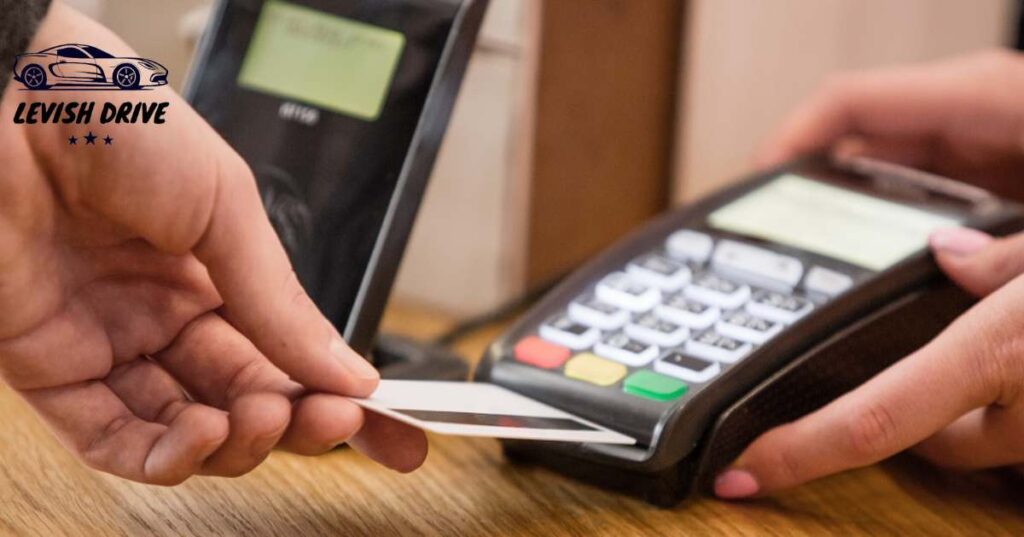When renting a car, one of the first questions a customer must decide is how to avoid paying a security deposit upfront which can range from $50-1000 depending on the rental company and location.
Many premium travel credit cards such as the Chase Sapphire Reserve or American Express Platinum offer automatic collision damage waiver coverage at no additional cost when booking for business or leisure travel which allows the customer to decline any additional insurance purchase at the counter and avoid leaving a cash deposit.
Beyond credit cards, booking directly through a major rental brand or loyalty program website provides the best opportunity for pre-qualified rates which may include waiving the deposit versus reserving through a third-party site.
Customers should also consider budget or discount rental agencies like Alamo, Dollar, or Thrift which often have lower base deposit amounts and provide proof of existing auto insurance whether it be a personal policy or coverage included in a homeowner’s or renter’s package, uploading the ID card during online booking helps streamline the rental process and potentially save on security charges.
Finally, establishing a positive rental history over time by keeping vehicles damage-free and returning on schedule allows frequent customers to earn awards including deposit-free rental privileges with most major brands.
What is a deposit (blocking a deposit)?
A deposit, also known as a blocking deposit, is a sum of money that rental car companies ask customers to put down before renting a vehicle. This protects the company in case the customer damages the vehicle or fails to meet the terms of the rental agreement. The deposit amount typically ranges from $50-$1000 depending on the rental company and customer’s rental qualifications.
How to rent a car with a lower blocked deposit?
There are several ways to potentially lower or avoid paying a deposit when renting a car:
Rent with a travel credit card that provides collision damage waiver insurance. Many premium travel credit cards like the Chase Sapphire Reserve or American Express Platinum automatically provide this coverage at no extra cost when renting for business or leisure.
Book directly through the rental car company website or customer loyalty program. Third party booking sites sometimes charge more in non-refundable fees that can include a deposit. Booking direct or as a rewards member may qualify you for lower or no deposit rates.
Rent from a discount rental car company. Budget, Alamo, and Enterprise often have lower base deposit requirements than national brands.
Provide proof of existing auto insurance. upload your insurance ID card during online booking or show it at pickup. Many policies cover rental cars too which helps reduce required deposits.
Pay for insurance through the rental company. Collision damage waivers typically range from $10-30/day and can eliminate deposit requirements for damage to the vehicle.
Become an approved rental company customer. Frequent renters who establish a positive rental history may get deposit-free rentals as a loyalty perk.
What should you do if a car gets damaged?
If an incident occurs resulting in damage to the rental vehicle, immediately notify the rental company and file a report. Stopping additional damage from occurring can help minimise costs.
Damages covered by insurance waivers may result in little to no charges being assessed against the rental deposit. Uninsured damage amounts may be deducted. Contesting charges may require requesting an itemised repair invoice.
Why A Car Rental Company Asks For A Deposit Amount?

Rental car companies require a security deposit for several key reasons:
Protection against damage costs: A deposit acts as a buffer in case the vehicle incurs damages not covered by insurance during the rental period. This protects the company’s assets.
Guarantee for additional rental fees: Deposits ensure payment if the customer returns the renta car late or incurs excessive mileage/parking charges.
Assessment of customer risk: Larger deposits may be charged to younger drivers or those with no/insufficient existing insurance coverage who present higher inherent risks.
How To Avoid Deductions On The Rental Car Deposit?
Some best practices to help avoid unwanted deposit deductions include:
Inspect the vehicle thoroughly at pickup noting any existing damage and request it be documented. This establishes the rental car’s condition.
Return the vehicle to the same rental location on time with a full gas tank. Additional charges may apply otherwise.
Decline additional drivers to avoid potential liability from people not on the rental agreement.
Carefully review the rental paperwork and policies to understand coverage limits and responsibilities.
Purchase insurance coverage through the rental company to waive responsibility for damage claims.
Take plenty of pictures if an accident occurs to document the incident and help resolve liability issues.
Find A Car From A Zero-Deposit Rental Car Company
Some rental car companies allow rentals without collecting any deposit upfront. Two notable options include:
Bon Voyage Rental Car: A California-based discount rental agency that doesn’t require security deposits. Rates are unbeatable but vehicles tend to be older models.
Uhaul Rental Car Share: Operated by Uhaul, this one-way car sharing program in major cities has no deposits, only hourly/daily usage fees. Good for quick local trips.
Always check for membership requirements, vehicle availability, and rental qualifications before booking with deposit-less providers. Having a premium credit rental card is still recommended for full collision damage coverage.
How to avoid paying a deposit on a rental car?

To summarise the best ways to avoid paying a rental car deposit:
- Use a travel credit card with automatic collision damage waiver coverage
- Book directly through the rental company
- Provide existing auto insurance information
- Pay the collision damage waiver offered by the rental company
- Rent from budget or discount rental agencies
- Look for zero-deposit rental car companies
- Establish positive rental history over time
Being well prepared with insurance documentation and credit cards will give you the most negotiating power to get a deposit-waived rental.
Frequently Asked Questions
What is the deposit for most rental cars?
The deposit protects the rental company from potential vehicle damages.
How do I avoid Hertz security deposit?
Using a premium travel credit card provides automatic CDW coverage to avoid Hertz deposits.
Can I use my debit card for a rental car deposit?
While debit cards can be used, a credit card is preferred for liability protection during rentals.
Why do car rentals take a deposit?
Rental companies require deposits to cover possible costs from vehicle damages beyond other insurance options.
Related Post: Why Is My Car Shaking When I Accelerate
Conclusion
Rental car deposits provide an important protection mechanism for both customers and rental car agencies. By requiring an upfront security amount, the company has funds available to cover any potential costs arising from damages to the vehicle beyond what regular insurance options may address.
This safeguards the company’s assets from excessive or uninsured repair bills. At the same time, the deposit serves as a deterrent for renters to properly maintain the vehicle during their rental period.
However, this article outlined several effective methods travellers can utilise to avoid paying these deposits altogether or significantly lower the required amounts.
By taking the proper precautions like using select travel credit cards, providing existing auto insurance, renting from budget-friendly companies, and establishing a positive rental car history over time, customers can ensure they have the necessary coverage without the burden of deposit fees dragging down the cost of their trip.
With advance planning and research into their various insurance coverage options, renters can protect themselves financially and feel secure hitting the open road deposit-free. Rental deposits undoubtedly serve an important purpose, but savvy consumers have the power to bypass them with a little extra preparation.
